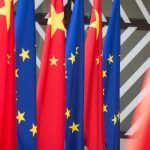Parliament is concerned about China’s export restrictions on key raw materials and the impact on the EU economy.
On 4 April 2025, China imposed export restrictions on seven rare earth elements and magnets used in the defence, energy and automotive sectors in response to increased US tariffs on Chinese products. Under the new rules, exporters will need additional licences before they can export from China.
In a resolution adopted by 523 votes in favour, 75 against and 14 abstentions, Parliament says China’s action is unjustified and defines it as coercive, given the country’s quasi-monopolistic position. MEPs stress the need for the EU to identify, implement and strengthen areas where it has critical advantages over China in essential goods and technologies. They are also concerned about China’s requirement for export permit applicants to disclose confidential data.
The plenary urges the Commission and Member States to speed up the implementation of the Key Raw Materials Law, the main objective of which is to ensure that the EU has secure, diversified and sustainable access to raw materials.
The text also stresses the need for the EU to activate national mining projects and calls on the Commission and countries to assess the minimum level of strategic reserves of rare earth elements. MEPs encourage the pursuit of bilateral partnerships on raw materials with countries that meet high standards of sustainability and human rights.
Parliament hopes that these concerns and their wider implications for global supply chains will be addressed at the forthcoming EU-China summit.
Background
China has a quasi-monopoly on the export of critical raw materials, rare earth elements and permanent magnets. These are used in various sectors, such as the automotive and defence industries, but also for the production of wind turbines, headphones and MRI machines. Chinese restrictions have already been felt in these industries.
More information: European Parliament







Leave a Reply